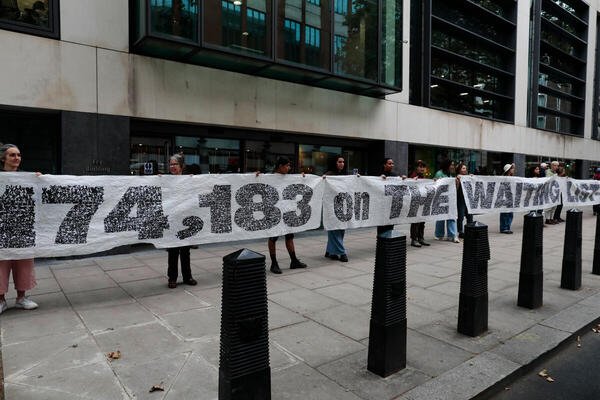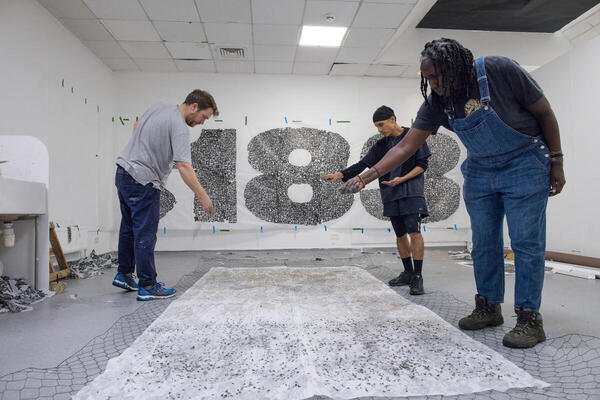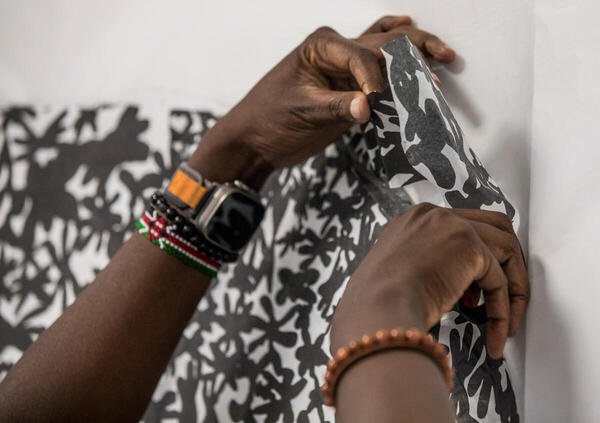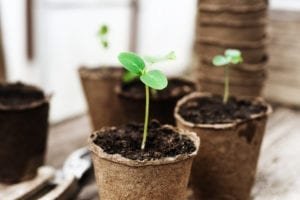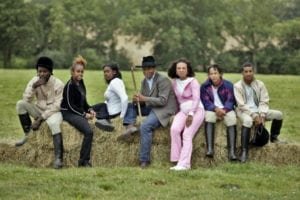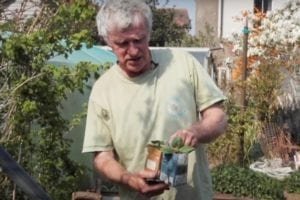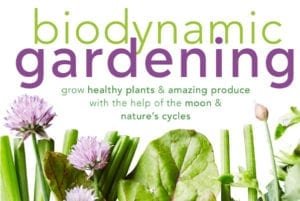Images: © Elizabeth Dalziel/ Greenpeace
A 30m-long living artwork made of seed paper was unfurled and displayed at Westminster yesterday (11 Sept) by artists and allotmenteers.
They are urging the government to enable people to exercise their rights to allotments as part of the solution to food insecurity, the cost of living crisis and the climate and nature emergency.
The allotment waiting list
The artwork, which was taken to the Department of Levelling Up, Housing and Communities, is embedded with clusters of seeds as well as ash from burned Amazon forests, spelling out the message ‘We the 174,183 demand allotments’.
It is a visual representation of new data collected by Greenpeace UK and the artists via Freedom of Information requests to all councils in England, Wales and Scotland.
The data show there are now at least 174,183 applications sitting on local authority allotment waiting lists across Great Britain – with England figures almost double what they were in 2011.
Waiting times average at three years, and the longest average waiting time recorded was 15 years.
The local authority with the longest waiting list is Bristol at 7,630 applications, followed by Sunderland, Portsmouth, Southampton, Edinburgh and Manchester.
Feeding families
Campaigners argue that the numbers of applications for allotments demonstrate a huge desire from people to be part of the solution to the multiple crises we are facing related to the cost of living, climate, nature and health.
Against a backdrop of soaring food prices, the growing number of food banks and more families falling into poverty each week, the potential of this figure is staggering.
One allotment is designed to feed a family of four so if each allotment request on today’s lists were granted, they could collectively feed cities the size of Nottingham and Leicester combined.
‘Allotment waiting lists demonstrate a huge desire from people to be part of the solution to our broken food system but without access to land, the many benefits of community food growing to people, nature and the climate are being stifled.
‘The government must support councils to act as well as take seriously its own role in creating systemic and lasting change to the food system. Crucial steps include proper support for farmers to transition to climate-, people- and nature-friendly farming as well as measures to reduce our climate footprint abroad including a ban on imports of soya and other agricultural commodities that drive deforestation in places like Brazil.
‘Climate scientists say we need to halve meat and dairy consumption globally by 2030 to tackle the climate and nature crises, but in the UK we eat far more meat and dairy than the global average so we need to eat 70% less to reach climate targets.’
DANIELA MONTALTO
Greenpeace UK forests campaigner
Artists’ letter refused
The three artists JC Niala, Julia Utreras and Sam Skinner are passionate about highlighting people’s right to access land for community food growing as well as the injustices caused by the industrial food system.
Alongside the artwork, the artists took a letter addressed to Secretary of State Michael Gove, but it was refused by security.
In the letter, which will now be posted, they pointed out ‘the opportunity [that allotments afford us] to address food insecurity and reduce our reliance on environmentally harmful industrial agriculture’.
As a collective, the artists specialise in making interactive public artworks grounded in research and were selected for funding and support from Greenpeace UK via the NGO’s Bad Taste project earlier this year.
 Play Video about This Rock Might Just Save The World
Play Video about This Rock Might Just Save The World Play Video about Play 2 hours of rock
Play Video about Play 2 hours of rock Play Video about Play 2 hours of brook
Play Video about Play 2 hours of brook Play Video about Play 2 hours of sheep
Play Video about Play 2 hours of sheep

















